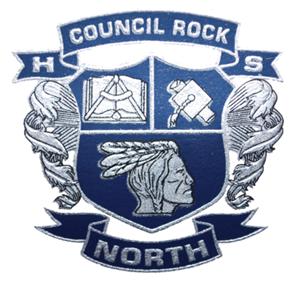 By Julia Gokalp Interviewees:
As the warmth of the summer months rushes in, restless students brace themselves for incoming finals, long for much-needed sleep, and eagerly await their vacation plans. About one quarter of our student population also will be leaving North and graduating in a matter of days. But this time of year is also one for reflection, so several teachers below share their insights and year-end messages to students. All of these teachers have taught at North for a significant amount of time, but the circumstances that brought them here varied. Mrs. Vander Vliet--known by her students as Mrs. V--and Mrs. Tomlinson were inspired by teachers they had in school, while Mr. Greenockle wanted to become a teacher for the opposite reason: he did not have as fulfilling of a high school experience, so he “wanted to help bring a change to education… [and] to be the change [he wanted] to see in the world” so that his students find their high school experiences more fulfilling. Other teachers did not anticipate their future occupation as they left college. One of these teachers was Mr. Biglan who, after receiving his Master's Degree in painting, moved to New Orleans, became a starving artist, and taught at an arts center and an art museum. He then created an outreach program in which he drove a van with Starry Night on the side to schools to show artifacts to students. And he named the program… wait for it… Van Go. Fitting, right? In this aptly named program, he educated younger kids, whom he enjoyed teaching, but he realized that he could relate more to older children and that they produced more sophisticated artwork. Mr. Price realized he enjoyed educating children through a very different experience. He has always loved the outdoors, so when, after college, he was informed about an outdoor program for the rehabilitation of juvenile delinquents, he took the opportunity. Through the experience, Mr. Price witnessed the growth many of these young adults underwent over the 26-day period. He faced many trials (including a complicated work schedule and some recalcitrant children) but gained valuable insight, such as not to mislead children, but to be honest with them, and that he enjoyed working with young adults. No matter what path these teachers took to North, though, they all agreed that their classes offer benefits to all students, even if students do not intend to pursue professions in the specific subject area. For instance, Mrs. V believes that her classes contain “a challenging curriculum [...] that prepares students for higher level thinking” and give her students an opportunity to enhance the skills of logical and critical thinking, thorough reading, and well-developed questioning, all of which can be applied to any area of life. Multiple teachers shared the belief that the skills obtained in the class were important--arguably more important than the content itself. Mr. Greenockle stated that in his class, students learn about concepts to which they can personally relate, such as financial responsibility, problem-solving skills, and the ability to formulate questions. Mr. Price believes that the value of studying science is to learn about “being objective about evaluating life in general.” In science classes such as his, students have to make and evaluate observations that often relate to concrete data. In such studies, there is less room for opinion. He believes that in a society where “everything is editorialized,” objective decision-making and analysis are crucial. Mr. Biglan cited the ubiquity of art and creative fields, traces of which are omnipresent in the world around us. “But more than that,” he added, “I believe creativity gives meaning to [...] our existence. I think creativity can have a spiritual or cathartic quality.” In addition to the holistic benefits offered within their courses, most teachers hope that students will leave with a better understanding of life itself and of themselves. Mr. Greenockle hopes that his students will “take away the skills and desire to be … free and independent thinkers,” while Mrs. V hoped that her former students would be people “of character,” dependable, honest, and empathetic. Mrs. Tomlinson said that her final message to her students would center on “embrac[ing] their mistakes and own[ing] their failures. Without mistakes and failures, we never truly learn and become better versions of ourselves.” Additionally, many of the teachers expressed hope for their students to pursue lifestyles that make them happy, to lead lives in which they can find passion and enjoyment in whatever they do. And some teachers may also want their students to know, as Sra. Macrone hoped they would, that she “truly care[s] about each and every one of them.”
0 Comments
Your comment will be posted after it is approved.
Leave a Reply. |
Archives
June 2022
Categories |
 RSS Feed
RSS Feed
